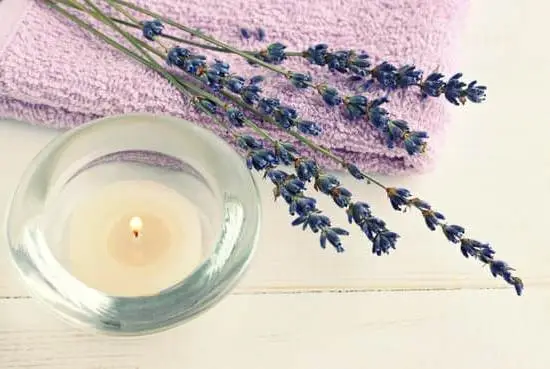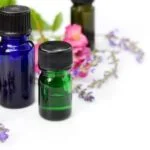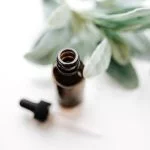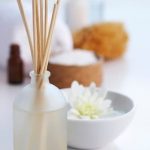Aromatherapy has gained popularity as a natural remedy for various ailments, including anxiety. Many people wonder what aromatherapy oils are good for anxiety, and in this article, we will explore the science behind aromatherapy and how it can help alleviate feelings of anxiety.
Aromatherapy is the practice of using essential oils extracted from plants to promote physical and psychological well-being. These concentrated oils can be inhaled or applied to the skin, where they are believed to have therapeutic effects. The sense of smell is closely linked to the brain’s emotional center, which is why inhaling certain aromas can have a calming or uplifting effect on our mood.
When it comes to anxiety relief, research has shown that certain aromatherapy oils can help reduce symptoms of stress and anxiety. In the following sections, we will delve into the science behind how these oils work and explore the top aromatherapy oils for anxiety, including lavender, bergamot, and ylang ylang.
We will also discuss different methods of using these oils for anxiety relief, such as diffusion and topical application. Whether you’re new to aromatherapy or already a believer in its benefits, this article aims to provide you with valuable insights into utilizing aromatherapy for managing anxiety effectively.
The Science Behind Aromatherapy Oils and Anxiety Relief
Aromatherapy has been used for centuries as a natural way to promote relaxation, reduce stress, and alleviate anxiety. The practice involves using essential oils extracted from plants to improve physical, mental, and emotional well-being.
Aromatherapy works by stimulating smell receptors in the nose, which then send messages through the nervous system to the limbic system – the part of the brain that controls emotions. This can have a calming effect on the body and mind, making it an effective tool for managing anxiety.
Essential Oils and Their Impact on Anxiety
Research has shown that certain essential oils have properties that can help reduce symptoms of anxiety. For example, lavender oil has been found to have a calming effect on the nervous system, while bergamot oil can help lower heart rate and blood pressure.
Ylang ylang oil is known for its ability to promote relaxation and ease feelings of tension and worry. These oils work by interacting with neurotransmitters in the brain, such as serotonin or dopamine, which play a role in regulating mood and emotions.
The Role of Inhalation and Absorption
When essential oils are inhaled, molecules enter the bloodstream through the lungs, where they are then carried to other parts of the body. Inhalation is one of the most common methods of using aromatherapy oils for anxiety relief because it allows for quick absorption into the bloodstream and immediate effects on the nervous system.
Additionally, some oils can also be absorbed through the skin when applied topically, allowing them to enter the bloodstream and provide similar benefits as inhalation. Understanding how these oils work within the body helps explain their effectiveness in reducing anxiety symptoms.
Top Aromatherapy Oils for Anxiety
Lavender essential oil is one of the most popular and well-known aromatherapy oils for anxiety relief. Its pleasant, floral scent has been shown to have a calming effect on the mind and body, making it an ideal choice for those experiencing feelings of nervousness or unease.
Benefits of Lavender Oil for Anxiety Relief
Lavender oil has been extensively studied for its stress-reducing properties. Research has shown that inhaling the scent of lavender essential oil can help decrease anxiety levels and promote relaxation. In addition to its calming effects, lavender oil may also help improve sleep quality, which can be especially beneficial for individuals whose anxiety interferes with their ability to get sufficient rest.
How to Use Lavender Oil for Anxiety Relief
There are several ways to incorporate lavender essential oil into your anxiety-reducing routine. One popular method is through diffusion, using a diffuser to disperse the aroma throughout a room. Alternatively, you can dilute lavender oil with a carrier oil and apply it topically to pulse points or areas of tension on the body.
Some people also find benefit from adding a few drops of lavender oil to a warm bath as part of their relaxation practice. Regardless of the method you choose, be sure to use high-quality, pure lavender essential oil for best results.
As with any essential oil, it’s important to use caution and do a patch test before using lavender oil on the skin, as some individuals may experience sensitivities or allergic reactions. Always follow recommended dilution guidelines and consult with a healthcare professional if you have any underlying medical conditions or are pregnant or nursing before using aromatherapy oils for anxiety relief.
Top Aromatherapy Oils for Anxiety
Bergamot oil is one of the top aromatherapy oils for anxiety relief. This citrus-scented essential oil is known for its calming and uplifting properties, making it an excellent choice for managing symptoms of anxiety and stress. Here are a few ways that bergamot oil can be beneficial for anxiety relief:
1. Aromatherapy: Bergamot oil can be diffused using an essential oil diffuser to create a calming atmosphere in your home or office. Simply add a few drops of bergamot oil to the water in your diffuser and let the aroma fill the space.
2. Topical Application: Another way to use bergamot oil for anxiety relief is through topical application. When diluted with a carrier oil, such as coconut or jojoba oil, bergamot oil can be applied to the skin as a massage oil or added to bathwater for a relaxing soak.
3. Stress Relief: Bergamot oil has been shown to help reduce stress and promote relaxation, making it an ideal choice for those dealing with anxiety. Its pleasant citrus scent can help uplift moods and alleviate feelings of tension and overwhelm.
When using bergamot oil for anxiety relief, it’s important to keep in mind some precautions and tips. Always perform a patch test before applying bergamot oil to the skin, as some individuals may experience sensitivities or allergic reactions.
Additionally, bergamot oil can cause photosensitivity, so it’s important to avoid direct sunlight or UV exposure after topical application. Lastly, if you have any underlying health conditions or are pregnant or breastfeeding, consult with a healthcare professional before using bergamot oil for anxiety relief.
Top Aromatherapy Oils for Anxiety
Ylang Ylang essential oil is one of the top aromatherapy oils for anxiety relief. This oil is derived from the flowers of the Cananga tree, which is native to Indonesia, Malaysia, and the Philippines. Ylang Ylang oil is known for its sweet, floral scent, and it has been used for centuries in traditional medicine and aromatherapy practices.
Studies have shown that Ylang Ylang essential oil has calming and relaxing effects on the mind and body, making it an effective natural remedy for reducing anxiety and stress. The scent of Ylang Ylang has been found to lower heart rate and blood pressure, which are physical symptoms often associated with anxiety. Inhaling the aroma of this oil can help promote a sense of well-being and tranquility.
One of the best ways to use Ylang Ylang essential oil for anxiety relief is through diffusion. Adding a few drops of the oil to a diffuser can fill the room with its soothing aroma, creating a peaceful atmosphere that can help calm nerves and reduce feelings of anxiousness. Another method of using this oil is through topical application.
When diluted with a carrier oil, such as jojoba or coconut oil, Ylang Ylang can be applied to the skin for a relaxing massage or added to bath water for a calming soak. It’s important to note that pure essential oils should never be applied directly to the skin without dilution, as they can cause irritation.
How to Use Aromatherapy Oils for Anxiety Relief
Aromatherapy diffusion is a popular and effective way to use essential oils for anxiety relief. Diffusion allows the aroma of the essential oils to be dispersed into the air, providing a calming and soothing effect on the mind and body. There are several methods of diffusing essential oils, each with its own benefits and drawbacks.
Some popular methods of diffusing aromatherapy oils for anxiety relief include:
- Nebulizing Diffusers: These diffusers break down essential oils into tiny particles and disperse them into the air without using heat or water. This method preserves the therapeutic properties of the oils and provides a strong aroma.
- Ultrasonic Diffusers: These diffusers use ultrasonic vibrations to break down essential oils into a fine mist that is released into the air. They also double as humidifiers, adding moisture to the air which can be beneficial for dry environments.
- Evaporative Diffusers: These diffusers allow essential oils to evaporate into the air, typically using a fan or natural airflow. While they are simple to use, they may not provide as strong or long-lasting of an aroma as other methods.
When using aromatherapy oils for anxiety relief through diffusion, it is important to consider the specific needs and preferences of each individual. Some people may prefer a stronger aroma, while others may be more sensitive to certain scents. It is always recommended to start with a small amount of essential oil and adjust based on personal preference.
Overall, diffusion can be an efficient method for harnessing the therapeutic benefits of aromatherapy oils for anxiety relief and creating a peaceful environment conducive to relaxation and stress reduction.
How to Use Aromatherapy Oils for Anxiety Relief
Using aromatherapy oils for anxiety relief through topical application can be an effective and convenient method. When applied topically, the essential oils are absorbed through the skin and can provide a sense of calm and relaxation. It is important to note that essential oils should never be applied directly to the skin in their concentrated form, as they can cause irritation. They should always be diluted with a carrier oil before applying to the skin.
One popular method of topical application is creating a massage oil or body lotion using anxiety-relief essential oils. This allows for both absorption through the skin and inhalation of the aroma during the massage or application. A few drops of essential oil can be added to a carrier oil such as coconut oil, almond oil, or jojoba oil for safe use on the skin.
Another way to use aromatherapy oils for anxiety relief through topical application is by creating a soothing bath blend. Adding a few drops of anxiety-relief essential oils to bath salts or directly into a warm bath can create a relaxing environment for soaking away stress and tension. This method allows for both inhalation and absorption through the skin.
It is important to perform a patch test before using any new essential oil topically, especially if you have sensitive skin. To do this, apply a small amount of diluted essential oil to a small area of your skin and monitor for any adverse reactions over 24 hours before full application. Additionally, pregnant women should always consult with their healthcare provider before using any essential oils topically.
| Method | Benefits |
|---|---|
| Massage Oil/Lotion | Allows absorption through the skin and inhalation during use |
| Bath Blend | Creates a relaxing environment for soaking away stress and tension |
| Patch Test | Evaluates potential adverse reactions before full application |
Precautions and Tips for Using Aromatherapy Oils for Anxiety Relief
In conclusion, aromatherapy oils can be a natural and effective way to relieve anxiety and promote relaxation. However, it is important to use them with caution and follow certain guidelines to ensure their safe and proper use.
When using aromatherapy oils for anxiety relief, it is crucial to do a patch test before applying them topically to check for any adverse reactions. Additionally, it’s important to dilute essential oils with a carrier oil before applying them to the skin to prevent irritation or sensitization. Always follow recommended dilution ratios and usage guidelines provided by reputable sources.
It’s also important to consider the potential interactions of aromatherapy oils with medications or existing health conditions. It’s best to consult with a healthcare professional before incorporating aromatherapy into your anxiety relief regimen, especially if you have any pre-existing medical conditions or are pregnant or breastfeeding.
Lastly, always purchase high-quality, pure essential oils from reputable sources to ensure their efficacy and safety. By taking these precautions and following these tips, you can enjoy the benefits of aromatherapy oils for anxiety relief while minimizing any potential risks.
Frequently Asked Questions
What Essential Oils Calm the Nervous System?
Essential oils that are known to calm the nervous system include lavender, chamomile, and bergamot. These oils have been used for their calming properties and are often used in aromatherapy to help reduce stress and anxiety.
What Essential Oils Smell Calming?
Essential oils with calming scents include lavender, rose, and sandalwood. These oils are frequently used in spa settings or for relaxation purposes due to their soothing and tranquil aromas.
What Is the Number One Essential Oil for Anxiety?
The number one essential oil for anxiety is often considered to be lavender. Lavender oil has been widely studied for its anxiolytic effects and is commonly used to help alleviate symptoms of anxiety and promote relaxation. Its gentle aroma makes it a popular choice for reducing stress and tension.

Are you looking for a natural way to improve your health and wellbeing?
If so, aromatherapy may be the answer for you.





